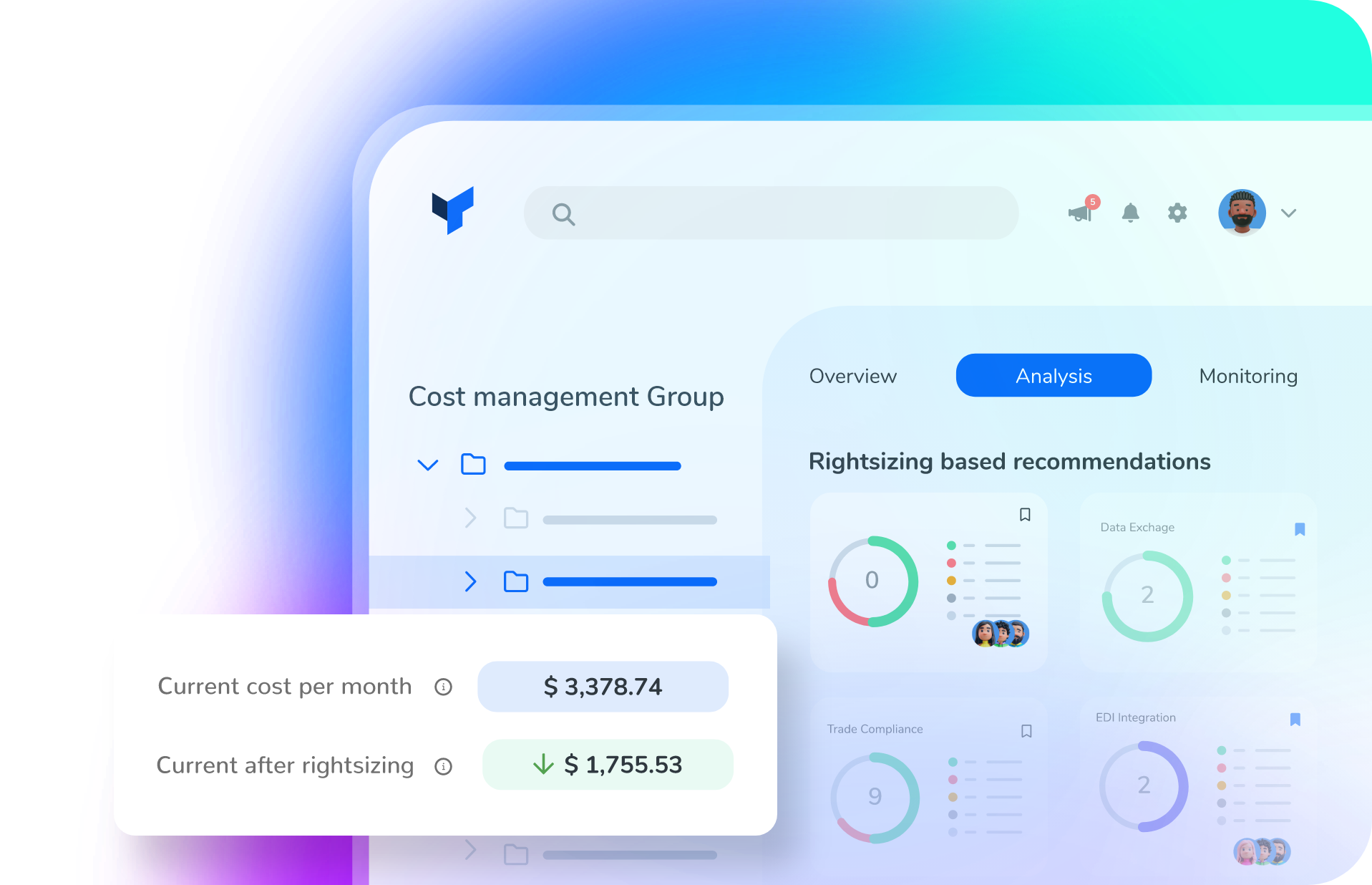Last year at INTEGRATE 2023 and this year again at INTEGRATE 2024, I stated on stage during my talks that Migrating from BizTalk Server to Azure Integration Services:
- It will be a complex and time-consuming task.
- You will need to innovate.

- And it will not be cheaper! But it’s definitely possible!
This particular last sentence: it will not be cheaper! Somehow, it shocked some people and was often misinterpreted. Even the definition of expensive is not clear sometimes. This may be normal since our talks are short, and we cannot go into detail on all topics. So, I will take this Friday Fact to clarify my message and pass the right story.
Many of you at the end of this blog post may say that this is, in fact, the total cost of ownership considerations when moving from BizTalk to AIS. No matter what you call it, I like to use simple language, and for me, this is the overall cost of migration of any kind of environment, system, or platform that you need to take into consideration. When I bought my house, I didn’t just look at the price the contractor wanted for it. I had to consider the total taxes that I would have to pay to the state, the legalization value of the house, and an estimate of what I would have to spend to have the house as I wanted or imagined it.
Migrating BizTalk Server to a new version of BizTalk Server: The Untold Story
But first, let’s clarify some facts about BizTalk Migrations: Migrating an old BizTalk server environment into another BizTalk server environment – hopefully the latest version – is expensive! It is not a cheap task, and these are the reasons:
- Upfront investment: Consider that you will not do an in-place migration, which is often too risky because it can impact the business. You need to buy new BizTalk Server licenses.
- The company can easily spend 100K in BizTalk Server licenses for a decent environment.
- On top of that, you need to include an SQL Server license and a Windows Server license.
- It also needs to pay for the hardware, usually, these days, virtual machines.
- Development: Consider that we usually migrate the solutions AS-IS without significant modifications. This is undoubtedly the smallest portion of the expense since migrating solutions to a new environment is a fairly easy task in BizTalk Server. Depending on the number of solutions, this usually takes days or a few weeks.
- Test and Acceptance tests: Here is where things usually go wrong. If you are lucky and IT can manage the migration without involving the business – sometimes it happens – this task will be fairly simple. But if you need to involve the business, then this can take several days, weeks, or months, depending on different teams, acceptance test complexity, and availability of teams.
- What people tend to forget is that involving all these people also brings costs to the company. Costs that need/should be imputed to environmental migration.
Migrating BizTalk Server to Azure Integration Story: The Correct Story
Now that you know that migrating an old BizTalk Server environment to a new BizTalk Server environment is not particularly cheap — understanding and accepting that the concept of cheap/expensive can vary from person to person — do you think migrating BizTalk Server into Azure Integration Services will be simple or cheap?
Of course, this also depends on your footprint in BizTalk Server and the types of integrations and features you use, but here, we will address them in general with good/average usage.
One of the good things about this migration process is that, if you are smart, you don’t need to think about and worry about upfront investment.
- Notice that I added “if you are smart” because sometimes I see clients from day one starting to create premium services like Service Bus, API Management, and a bunch of other services that they do not need yet. Just because they are thinking of using it or will use it at the end—that is an upfront investment for me. If you start small and get bigger, for example, by creating a Service Bus standard, and when you reach the point where you need the premium, go for it, and you will save money.
But, if we don’t need upfront investment anymore, why is this migration process it is also, or can become, somehow expensive?
The reasons are very simple:
- Development: That task will have a particular weight in the migration budget, and the reasons are:
- There is no magic button to migrate a BizTalk Server solution into Azure. Microsoft is closing the GAP and simplifying the process daily, but there is no one-to-one match of BizTalk Server features and capabilities with Azure Integration Services.
- Some features do not exist; some have a direct match; others have many options.
- Depending on company policies:
- You may be forced to choose a first or low-code no-code approach.
- You may or may not be forced to use premium services.
- You may or may not be compelled to use services under VNET.
- Many of the BizTalk Server applications have been running for years and were created many years ago, so it is normally that you will find that:
- There will not be any proper documentation explaining the business processes and rules.
- The people behind the applications that drive their creations have already moved on. They may no longer be with the company or hold other positions.
- There is no source code anymore.
- You need to make an assessment of your BizTalk Server environment and applications, understand them, and plan how they will be migrated, not only in terms of deadlines but also in terms of the services you will be using. Many times, we find that several processes are already being deprecated without anyone knowing. This means that many times, we need to involve the business in this assessment process for their validation, input, and approval. Translating into more manpower costs.
- You need to prepare the Azure foundations before you jump to the application migrations.
- Azure has a rapid release update cadence, so you must follow up, which means upgrading/migrating existing services to new versions or features.
- And you simply cannot migrate a BizTalk Server application AS IS. You need to innovate your BizTalk application to run on Azure – even if they have the same business logic.
- There is no magic button to migrate a BizTalk Server solution into Azure. Microsoft is closing the GAP and simplifying the process daily, but there is no one-to-one match of BizTalk Server features and capabilities with Azure Integration Services.
- Test and Acceptance tests: Here, for me, will be the most complex part that will take a good weight in the budget. If in BizTalk Server, in some cases, there was no need to involve the business in the test and acceptance tests. Here, that will not happen. This application needs to be tested correctly and extensible before it goes live. That means:
- We need to involve all teams in this process, and again, this can take several days, weeks, or months, depending on the different teams, the complexity of the acceptance test, and the availability of teams. All of these are COSTS for the company.
BUT… I’M NOT SAYING MIGRATING TO AZURE INTEGRATION SERVICES IS MORE EXPENSIVE OR LESS EXPENSIVE THAN MIGRATING OR CONTINUING IN BIZTALK SERVER.
I’m not comparing the cost of both migrations. I’m just saying that in the migration journey, you cannot only look at the cost of the technologies. You have to look at all the layers:
- Technology cost.
- Developing costs – normally, Azure developers are less expensive than BizTalk Server developers.
- Assessment phases costs.
- Testing phase costs.
- Costs in involving external teams.
- And so on
That’s why I’m saying that you have to make a significant investment. But it is also important to talk about the return on investment (ROI) when speaking about costs, and here, I do believe that you will have a faster ROI than migrating to a new version of BizTalk Server, for example.
Can competitors offer a better story?
No! I hear many customers tell me that a salesperson, a BizTalk Server, or another cloud competitor said to them that they could easily migrate AS IS their BizTalk Server applications… and it will be cheaper!
Stop buying that story because it is not true! Usually, they cannot migrate a simple BizTalk mapper AS IS. How will they carry out an entire application?
If you are in that position, ask them:
- For a proof-of-concept without cost to you. To see and understand how they can do those migrations.
- And ask them for clear evidence and case studies comparing the costs of migrating a BizTalk Server environment into their services compared to Azure Integration Services or BizTalk Server itself.
Ultimately, you will realize that Azure Integration Service is the simple and most cost-effective path to migrating a BizTalk Server environment. Because there is already a lot of parity between BizTalk Server and Azure Integration Services, and we can still use/migrate some components AS IS.
Disclaimer: The sentences and opinions presented in this Friday Fact are my personal opinions supported by my experience on BizTalk Server and Azure Integration Services, based on the reality I encounter in the clients and the facts I mention in this blog post.
To lazy to read? We’ve got you covered! Check out our video version of this content!
Hope you find this helpful! If you enjoyed the content or found it useful and wish to support our efforts to create more, you can contribute towards purchasing a Star Wars Lego for my son!



